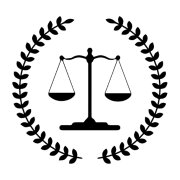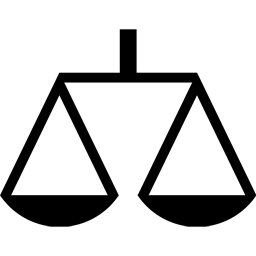Best Real Estate Lawyers in Senegal
Share your needs with us, get contacted by law firms.
Free. Takes 2 min.
Free Guide to Hiring a Real Estate Lawyer
Or refine your search by selecting a city:
List of the best lawyers in Senegal
About Real Estate Law in Senegal
Real Estate in Senegal is governed by a set of laws and regulations that aim to protect the rights of both buyers and sellers. From property transactions to land rights, understanding the legal framework is crucial for anyone engaging in real estate activities in Senegal.
Why You May Need a Lawyer
There are several situations where you may need the expertise of a lawyer in real estate matters in Senegal. This includes property disputes, lease agreements, land transactions, and compliance with local regulations. A lawyer can provide valuable advice and representation to help you navigate through the complexities of real estate law.
Local Laws Overview
In Senegal, real estate laws are primarily regulated by the Land Code and the Urban Planning Code. These laws cover a wide range of aspects including property ownership, land use, construction permits, and property taxation. It is essential to be familiar with these laws to avoid any legal issues when dealing with real estate in Senegal.
Frequently Asked Questions
1. Can foreigners own property in Senegal?
Yes, foreigners are allowed to own property in Senegal, subject to certain restrictions and requirements as stipulated by the law.
2. What are the steps involved in buying a property in Senegal?
The process of buying a property in Senegal involves signing a sales agreement, conducting a due diligence investigation, obtaining necessary permits, and registering the transfer of ownership with the land registry.
3. Are there any restrictions on land ownership in Senegal?
Yes, there are restrictions on land ownership in Senegal, especially when it comes to acquiring land in rural areas or near the coast.
4. Can I lease out my property in Senegal?
Yes, you can lease out your property in Senegal, but you need to have a written lease agreement that complies with the local laws.
5. What are the rights of tenants in Senegal?
Tenants in Senegal are protected by laws that govern rent increases, eviction procedures, and the maintenance of rental properties.
6. How can I resolve a property dispute in Senegal?
To resolve a property dispute in Senegal, you may need to seek legal advice and potentially engage in mediation or litigation to reach a resolution.
7. Is it necessary to hire a notary for property transactions in Senegal?
Yes, it is necessary to involve a notary in property transactions in Senegal to ensure the legality and authenticity of the transaction.
8. What are the taxes applicable to real estate transactions in Senegal?
There are various taxes and fees applicable to real estate transactions in Senegal, including transfer taxes, registration fees, and stamp duties.
9. Can I get a mortgage to purchase a property in Senegal?
Yes, it is possible to obtain a mortgage from banks or financial institutions in Senegal to finance the purchase of a property.
10. How can I verify the legal status of a property in Senegal?
You can verify the legal status of a property in Senegal by conducting a title search at the land registry and obtaining a property certificate that confirms the ownership and legal status of the property.
Additional Resources
If you need further assistance with real estate matters in Senegal, you may consider contacting the Senegalese Chamber of Notaries, the Ministry of Housing and Urban Development, or a local law firm specializing in real estate law.
Next Steps
If you require legal assistance in real estate matters in Senegal, it is recommended to consult with a qualified lawyer who has expertise in this field. They can provide you with the necessary guidance and representation to ensure your rights are protected and your transactions are conducted in compliance with the law.
Lawzana helps you find the best lawyers and law firms in Senegal through a curated and pre-screened list of qualified legal professionals. Our platform offers rankings and detailed profiles of attorneys and law firms, allowing you to compare based on practice areas, including Real Estate, experience, and client feedback.
Each profile includes a description of the firm's areas of practice, client reviews, team members and partners, year of establishment, spoken languages, office locations, contact information, social media presence, and any published articles or resources. Most firms on our platform speak English and are experienced in both local and international legal matters.
Get a quote from top-rated law firms in Senegal — quickly, securely, and without unnecessary hassle.
Disclaimer:
The information provided on this page is for general informational purposes only and does not constitute legal advice. While we strive to ensure the accuracy and relevance of the content, legal information may change over time, and interpretations of the law can vary. You should always consult with a qualified legal professional for advice specific to your situation.
We disclaim all liability for actions taken or not taken based on the content of this page. If you believe any information is incorrect or outdated, please contact us, and we will review and update it where appropriate.
Browse real estate law firms by service in Senegal
Senegal Attorneys in related practice areas.
Browse real estate law firms by city in Senegal
Refine your search by selecting a city.













